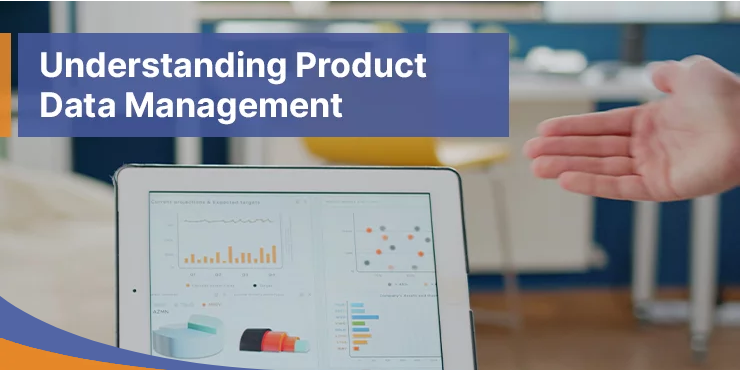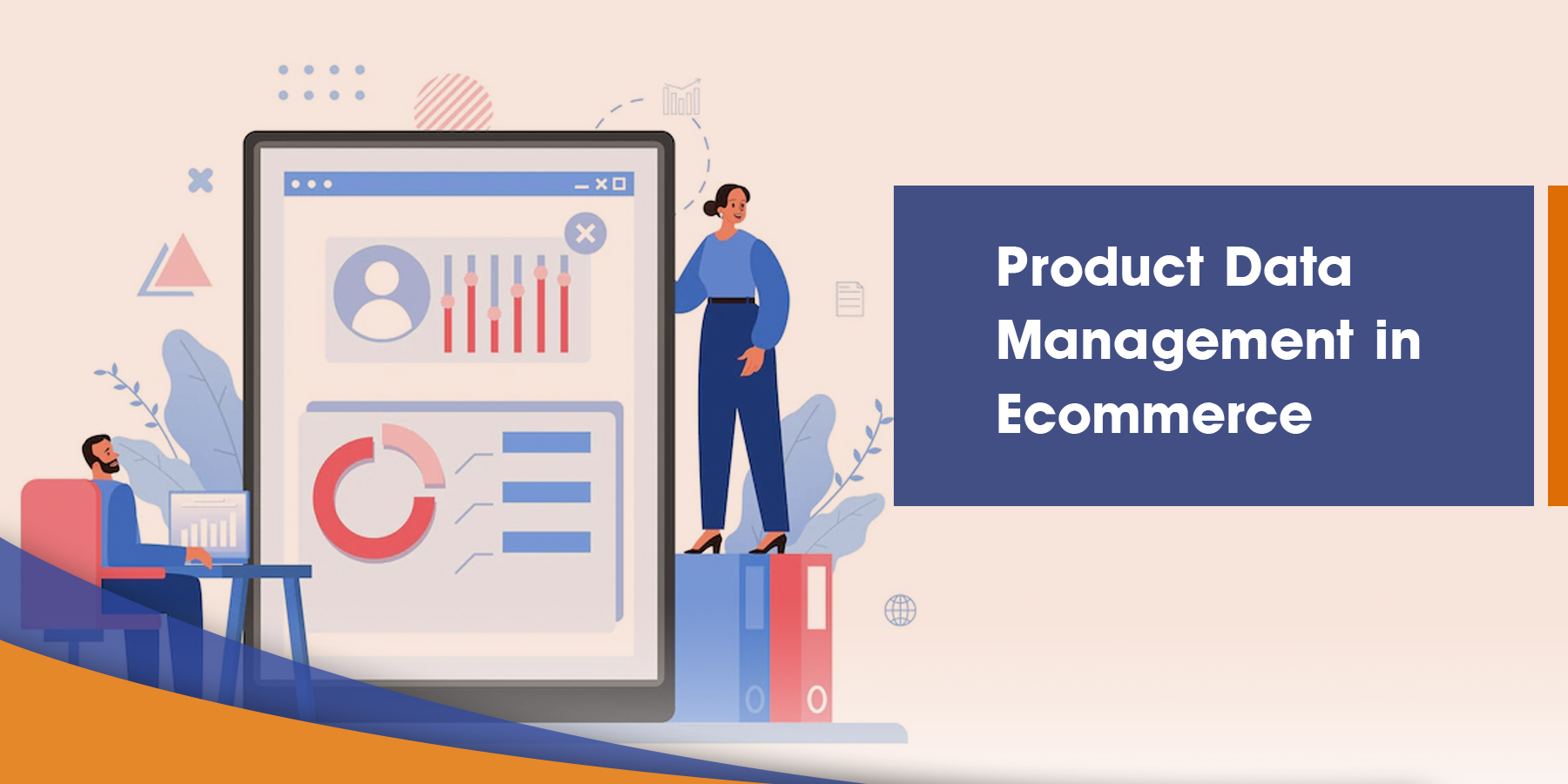
Businesses, particularly eCommerce stores, generate considerable data related to their products. However, it is often challenging to maintain the accuracy and correctness of this data, especially when there are multiple products in the line. Also, you want to make this data uniform and accessible to all responsible parties. That is when product data management (PDM) becomes vital.
A sound product data management system provides a business with a “solitary source of truth.” It is also a central system where you can easily access the company’s product data, in the knowledge that the information is valid. As a result, reliable product data management software saves you and your staff time and frustration in sifting through unorganized data. In addition, it helps streamline and simplify the customer experience, resulting in increased sales and improved brand reputation.
In a PDM system, you gather all of the product data, enrich it and disperse it rapidly and productively to the entirety of the channels digitally. These channels include websites, online stores, and marketing channels, for example, eBay, Amazon, and PriceRunner, and printed brochures, datasheets, catalogs, etc.
How does a PDM System Work?
Specifically, a PDM system refers to a centralized database containing all important product-related data for your business. The type and amount of data it stores vary depending on your business’s type, niche, and scale. Most often, product data stores on a PDM system includes the following:
- Product specifications
- Product descriptions
- Inventory status
- Product information provided by suppliers
- Information related to the product numbering system
You can load all of these data into a data product management system on your own. But this can be time-consuming and distract you from your core business activities. As a better option, you can outsource PDM product data management to a reliable and reputable company that efficiently manages your product catalog.
The Need for A Product Data Management
The requirement for a PDM system often emerges when a business’ product information requirements increase. This also results when the old method of managing data is never again satisfactory. Other reasons why your business may need data-driven product data management include the following:
- Your organization’s ERP system has become too rigid.
- It’s unfit to manage the expanding complexity of the product information.
- The chaos of databases and Excel sheets makes it difficult to find the right data and disperse it to the right channels.
The right PDM system is incorporated into the company’s different systems. It’s set up between the company’s sources for product data on one side (PLM, ERP supplier data, and so forth.) and the external data distribution marketing channels on the other (CMS lists, online store, datasheets, catalogs, etc.)
Things You Need to Know About Ecommerce Product Data Management
While it is standard for some big ventures to monitor their vast databases of parts, associated documentation, assemblies, it does not mean smaller organizations can’t profit from all the benefits related to enterprise-level information management. Effective data management services keep your company moving like a well-oiled machine.
Are you using data management services in your company? If you aren’t, it is time you did. Be that as it may, where do you start? To start with, you have to understand some fundamental things about the data management system. Some of which you never knew before.
PDM Is More Accessible to Smaller Companies Now
Data is critical to all businesses, big or small. Small businesses also generate a lot of data because of their growing product portfolio. So, they also need a product data management system to help streamline their products’ information.
In fact, product management is even more important to small businesses in order to survive and thrive in the competitive market. They can’t afford to lose or disappoint even a single customer. So, they need to be more focused on product data management.
And now, the good news! Small businesses can also access a good PDM system that best fits their needs and budget. Generally, these software systems have only been accessible to big organizations with substantial budgets. But the era of expensive and sophisticated business software only being available to large organizations is about to end. With the introduction of some new PDM essentials, you can make use of this secret weapon that organizations like Volvo and Philips use.
You’ll find PDM systems that are priced and scaled for different business sizes, from only one user to many users. What’s more, here is the best news: it may very well be that the installation and configuration take only a day!
Another better choice is to outsource your product catalog management. In this way, a reliable third party will do everything for you, from storing the data to ensuring its compliance with respective regulations. What’s more, you also save time and stay focused on your core business activities.
Product Data Is Critical to Purchasing Decisions
In today’s world, when any kind of information is available at their fingertips, consumers have gone smarter. They do a lot of research before making a purchase decision. So, the more and better product data available, for instance, in your online store, the higher the probability that the buyer will become your customer.
Data-driven product management helps you to use the right data while uncovering useful insights and having the right products in your catalog. A PDM software system makes it simple to develop and maintain all kinds of product data. As a result, you could provide your customers with a full description of the item, including its specs, necessary videos, images, etc.
Well-maintained data serves as an immensely powerful resource that, when leveraged appropriately, can help with the following:
- Develop a greater understanding of your audience base
- Accurately measuring the product’s progress and tracking its health
- Determining products’ success after their launch.
Besides product specifications, a product data management software system provides additional insights like total sales, gross profit, average daily sales, conversion rate, order value, etc. Between year-over-year growth, these insights help evaluate your company’s overall performance. As a result, you can determine whether you can reach your business goals or not.
A Data Set Brings Benefits Only When It Is Used on Decision Makings
If you use best practices, for instance, clean a data collection, distribute its schema, assign a data steward, and layer on an open API. Still, no one ever uses the data set; you have not delivered any direct benefits.
Decisions and actions bring about benefits, and until we utilize a data set to support our decision-making, it is merely incurring costs. (We recognize that a data index that is “all set” has an option value; however, that shouldn’t be your initial eCommerce product data management focus).
You Have to Consider Security
Storing your data is the most important aspect of data management services. You don’t want your product data to fall victim to a data breach. So, it is important to prioritize data security and protection when it comes to product data management.
You will have to remember a few different things. First, security ought to be the priority on your list. Information security is more critical as an ever-increasing number of organizations get hacking risks. No customer likes discovering the compromising of their data. No company does either. Be mindful of security breaches. Consider security measures like a regular part of your data management. Ensure that the product data management software or service you choose conforms to all regulations related to data security in your region.
Moreover, have your data backed up so that you can recover it at any time you want, in case of a disaster. You can also choose a system that uses cloud storage so that you can access data at any time while ensuring safe backup.
All in all, choose a PDM system with robust security and administrative functionality. This functionality protects intellectual property rights through project-based security, associated access privileges, and role management.
It Saves Time
Setting up a data management system requires time and effort, particularly when you are working with too much existing data. The result, however, will be worth what it took you to get there. When you have your system fully operational, you will wonder how you ever coped without it. In addition, when your data is overseen productively, you have more time to commit to other things.
Also, by choosing a reliable product data management system or service, you can have peace of mind knowing that your data is in safe hands. This improves your focus and productivity for other important business activities. In the end, you will achieve better results, streamlined processes, and more revenue.
Final Thoughts
Product data management services are very critical to the success of your organization. It makes it run smoothly and allows you to focus on other meaningful things.
With Vserve product data management, your company’s data management will take your business to more productive heights. We provide end-to-end product data management support throughout its lifecycle, from development and integration to data management and ongoing maintenance.
If you do not have a data management system already set up, start the process today. Call our experts now for further discussion.







